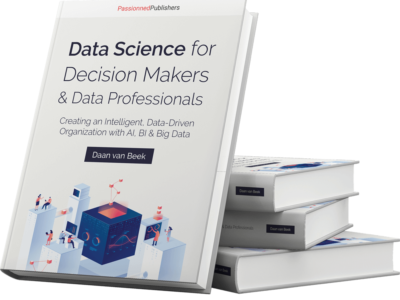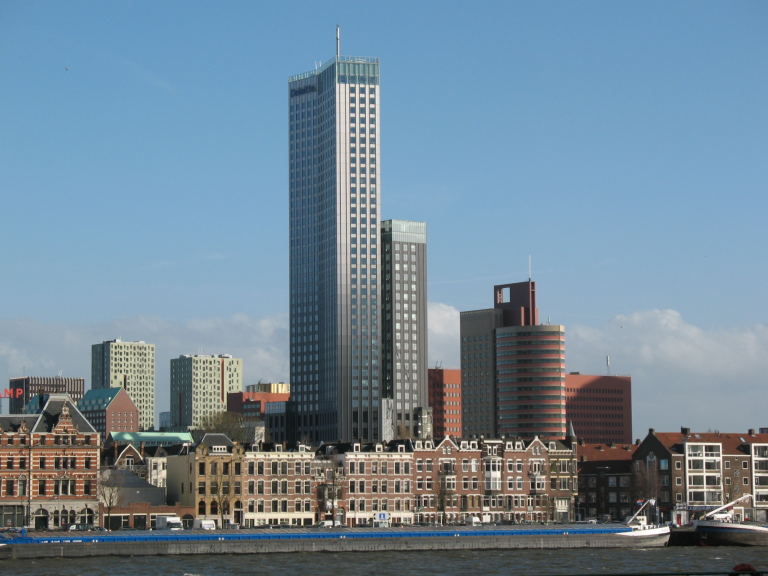Rotterdam is lifting off
In 2014, the Rotterdam community wanted to bring more cohesion to all BI activities. It started with information architecture and the description of a strategy. A pilot project focused on school dropouts, along with Passionned Group, is now set to demonstrate how it works in practice. The pilot is part of the National Program Rotterdam South (NPRZ), within which the national government, the municipality of Rotterdam, housing corporations, healthcare institutions, school boards, businesses, police, and the Public Prosecution Service are working hard towards a healthy future for Rotterdam South. Together, these partners ensure that education levels, labor participation, and living quality will rise to the average of the four major cities in the Netherlands within 20 years. The ‘Data Science Book‘ by Daan van Beek served as inspiration here.
There is a growing need to be flexible and to adjust more often
Communities become increasingly aware of their long-standing policy cycle based on multi-year plans failing to work as well as they used to. There is also a growing need to be flexible and to be able to stay in tune based on available current data. Willy Groenewold, senior information management adviser at the CIO office of the municipality of Rotterdam, has therefore introduced the term ‘information-driven working’ at the municipality. “It’s a somewhat more value-free term than business intelligence, chosen in order to break free a bit from the technology and from the ‘that’s-not-for-me’ feeling.”
“The broad vision and approach fascinated me”
Last year, Groenewold and her colleagues realized that different departments of the municipality were indeed working with management and control information, but there was no shared vision of BI or a crystallized working method. “Our Research and BI department asked the CIO to develop an architecture to provide a framework for this. We set to work on it last year.” Like many others, she came across the Data Science for Decision-Makers book by Daan van Beek during her search. “The broad vision and approach fascinated me. We could use the book to show that the stakeholders were busy with different aspects, but that the bigger picture was missing.”
The Business Intelligence book This business intelligence & AI book covers the most important basic principles, organizational processes, architectures, tools, and conditions needed to create a truly Intelligent Organization. Make better decisions faster, at all levels of your organization. Discover how Rotterdam became a truly intelligent city with the help of techniques described in this book.
This business intelligence & AI book covers the most important basic principles, organizational processes, architectures, tools, and conditions needed to create a truly Intelligent Organization. Make better decisions faster, at all levels of your organization. Discover how Rotterdam became a truly intelligent city with the help of techniques described in this book.
Dot on the horizon
Van Beek was invited to review the concept architecture – the dot on the horizon – and then contribute the missing elements, but the story didn’t stop there. “Once the architecture was established, we asked ourselves, ‘how do we ensure that it is realized and doesn’t just disappear in a drawer’?” Together with Passionned, Groenewold and her colleagues worked out the strategy, and they also came to two conclusions. “The stakeholders said, ‘we would like a baseline, an overview of the current state of affairs'”.
Based on around 250 completed questionnaires and 25 interviews, we now have a clear picture of the actual and the desired situation. This establishes an important basis for further elaboration of a ‘roadmap’. The other conclusion was that it was important to properly test the new BI arrangements in a pilot and to demonstrate the advantages of this working method.
BI is largely a change management process
The whole exercise is largely a change management process, says Groenewold. “It can not be developed by technical specialists alone. It all starts with a line department pointing out what goals must be managed and what processes and data are thereby important.
Some are more and others are less aware, and, so, such a baseline makes answers clear. Success requires effort from all stakeholders, and it takes much work to have it grounded within our organization. Passionned is also very strong in the organizational and process-oriented aspect of BI.”
The wind blows in the right direction
When it comes to information-driven work, the wind in Rotterdam is blowing in the right direction, finds Groenewold. “It is generally recognized that we have too little capacity in the area of BI and it’s important to give this more attention.”
Doing it yourself is therefore important, she says. “What I really like about Passionned is that they don’t take it over and use a sort of prefab approach, but, instead, they are constantly keeping on their toes to see what suits the organization.”
A pilot project for youth
The pilot project, which is currently running, arose from a request from the National Program Rotterdam South (NPRZ). “Management information is very important in order to see exactly what is happening now and what progress has been made in the area of housing, care, and work. This information must come from different parts of the municipality.” This often still happens ad hoc for some aspects.
The pilot project, in which Passionned is involved once again, is part of the whole program and focuses specifically on making school dropout and youth unemployment KPIs clear and analyzable. “With that, it should be clear how the processes run, what we know of young people, which parts of the municipality are involved, and what information we have available in the systems. This is really important for the National Program, and this helps the clusters in the municipal organization.”
Collaborative state
Groenewold sees a lot of enthusiasm arising from that. “With the pilot, the people with the questions are finally helped, so they are very positive. These employees get into a collaborative state. From there, it becomes important to convince the people who are more distant from the implementation of the benefits of information-driven working and to get a flywheel effect going. It remains important to keep up closely with the demand, but I have no doubt that this way of working will be developed further by the municipality of Rotterdam in the coming period.”
Interested in our approach?
Do you want a no-obligation discussion with our advisers about the approach outlined above and what information-driven working can mean for your municipality? Please contact Daan van Beek.



